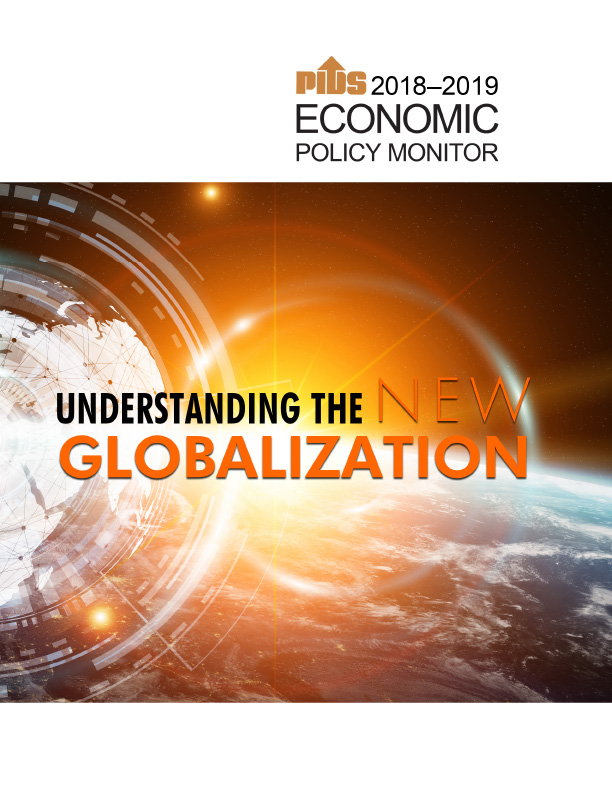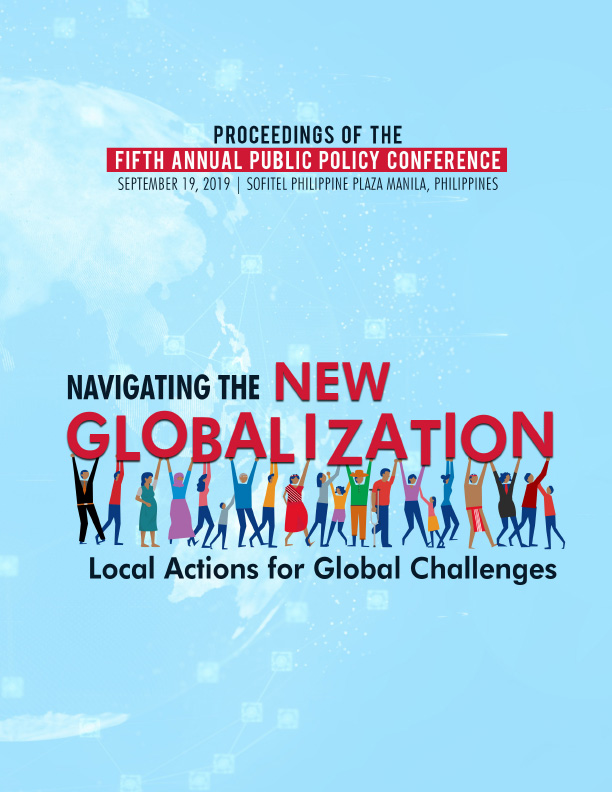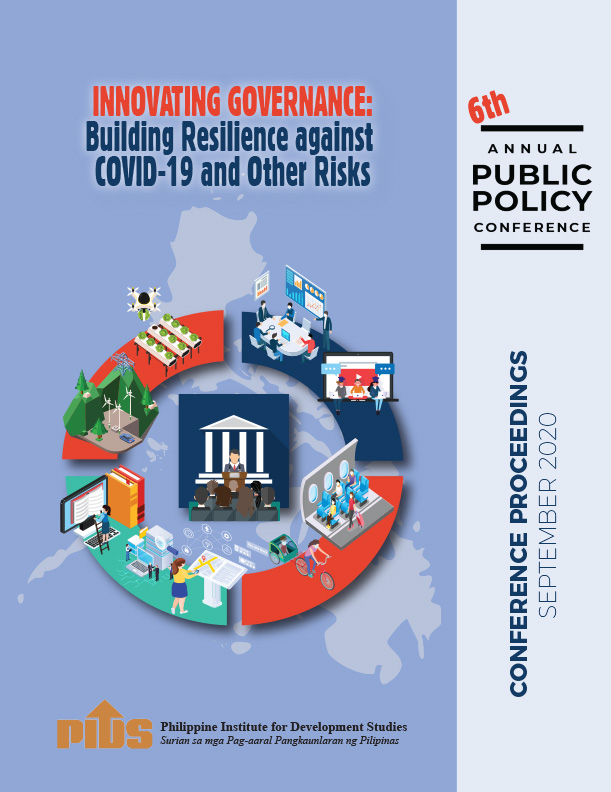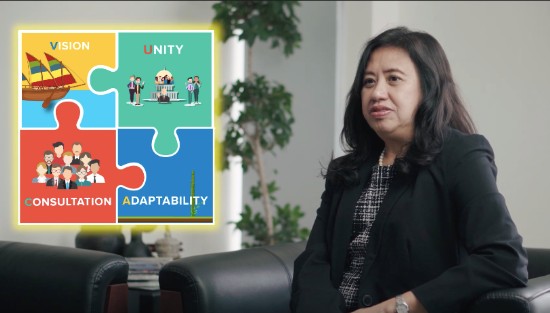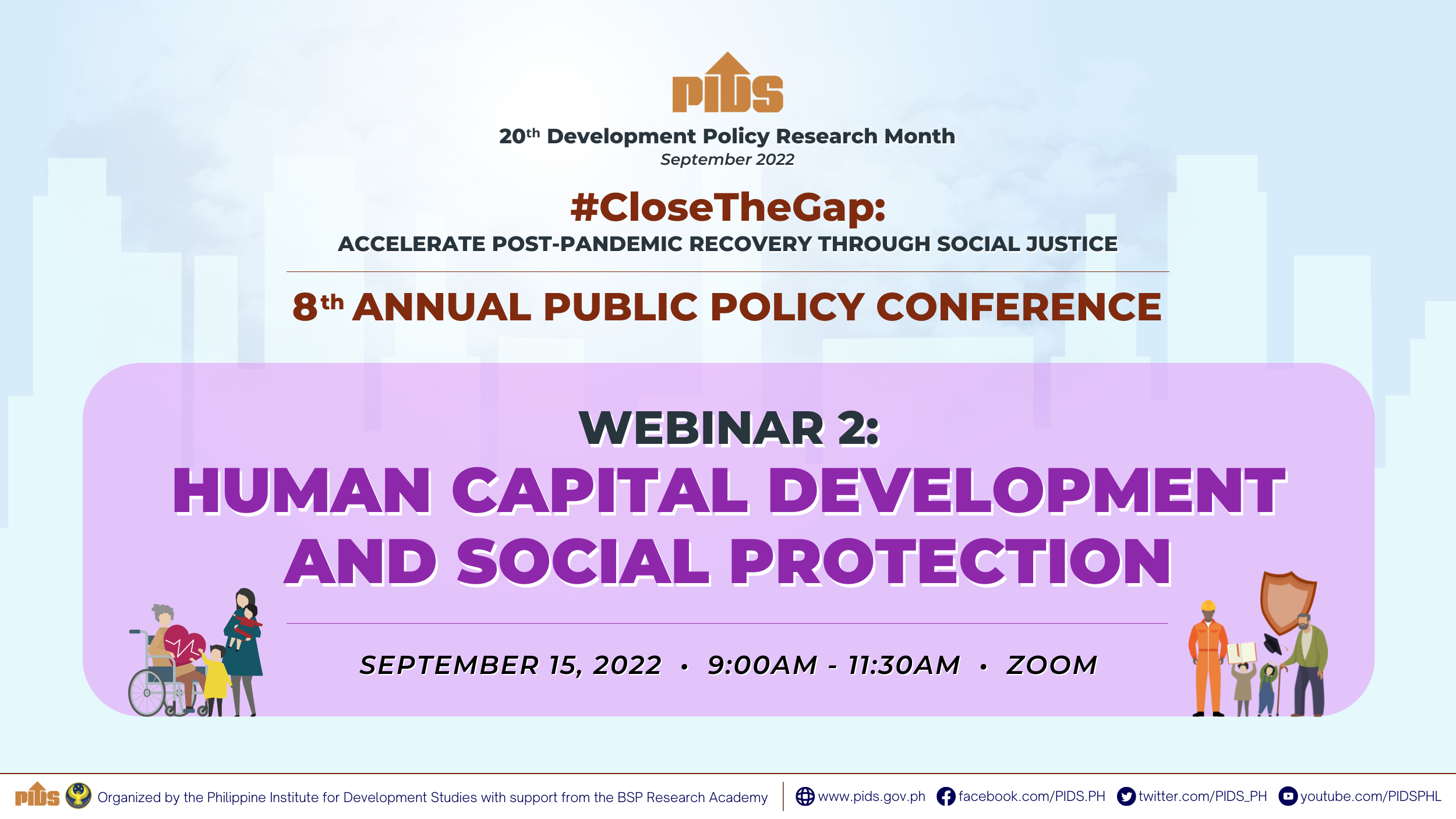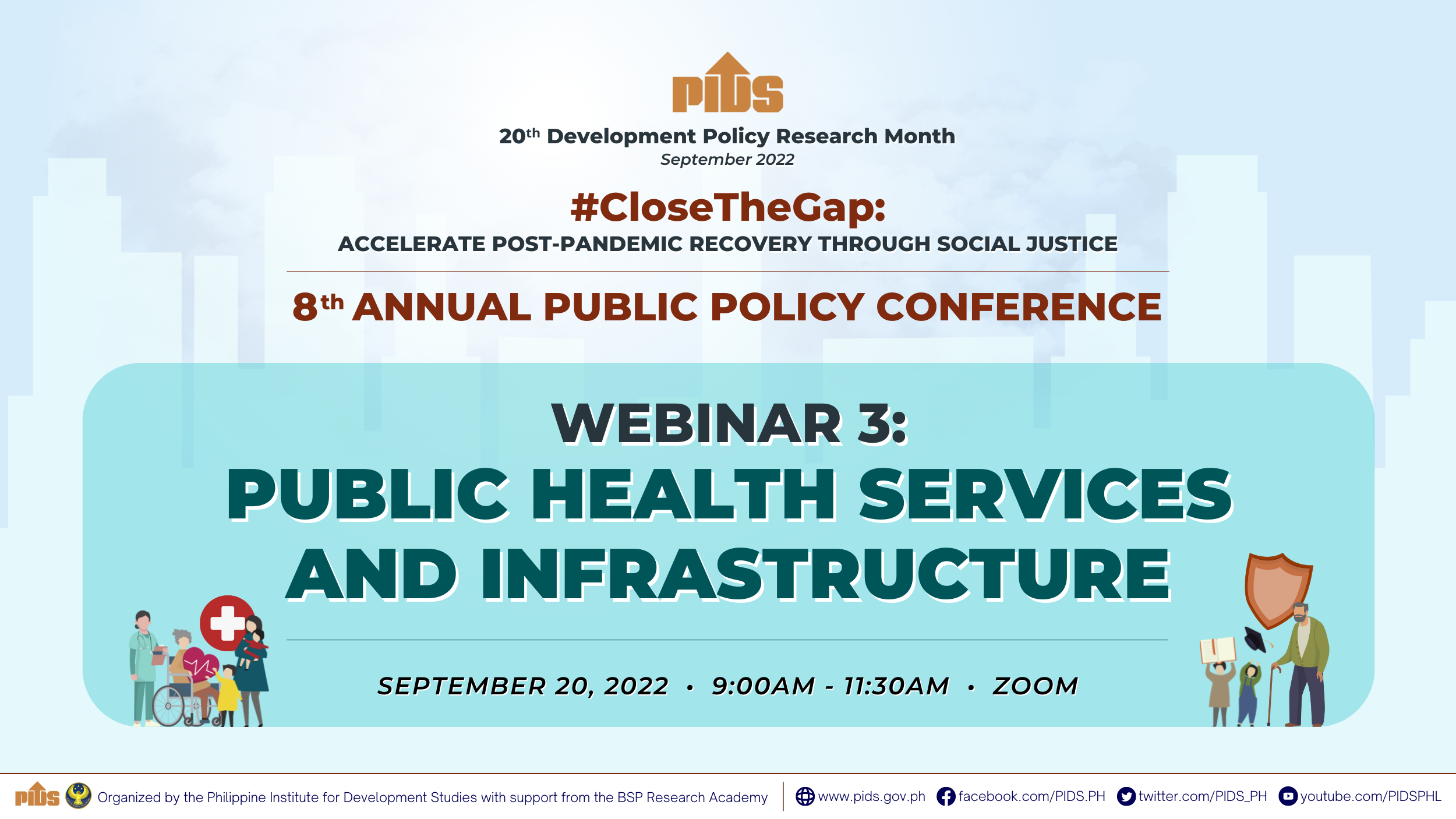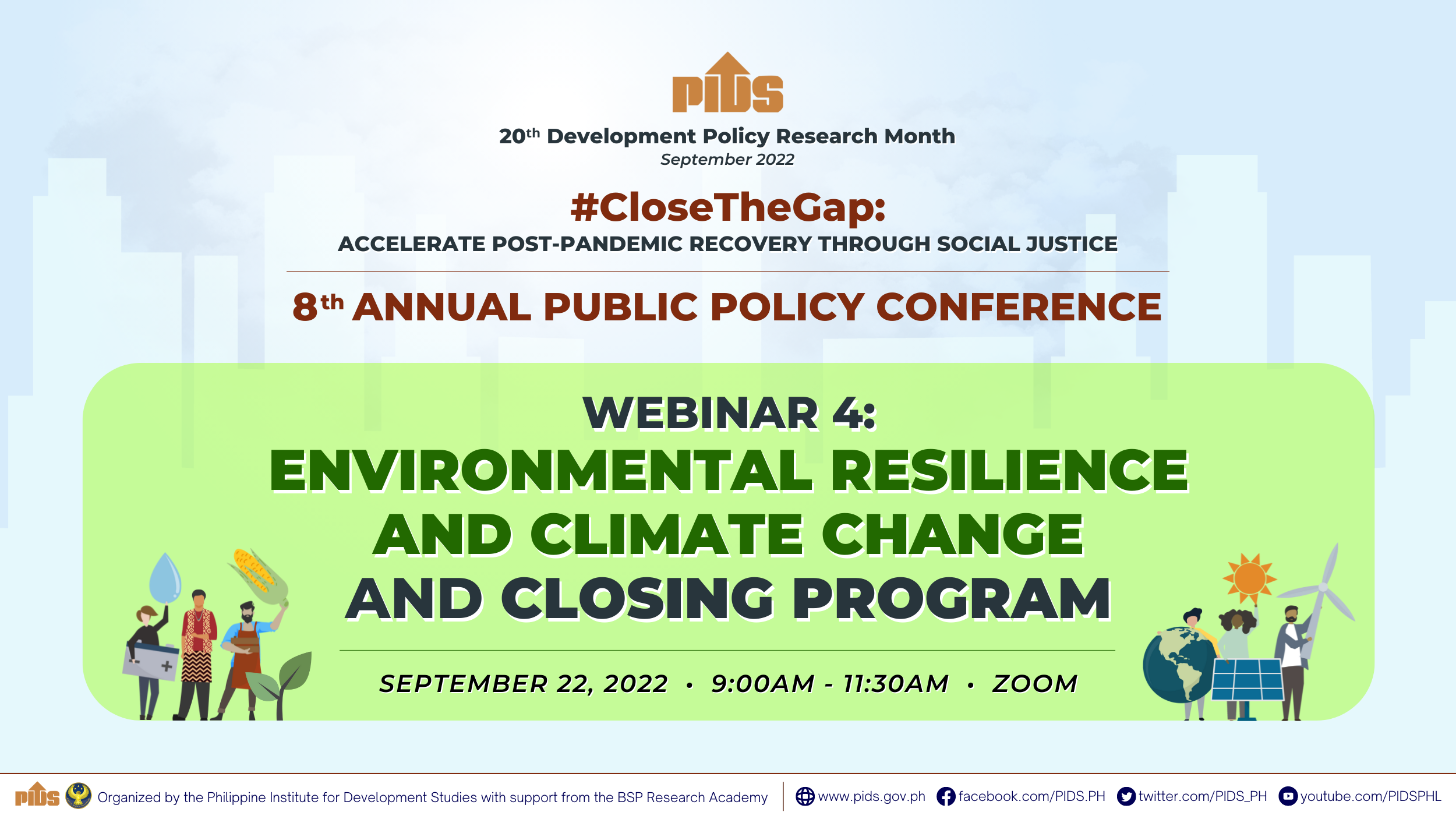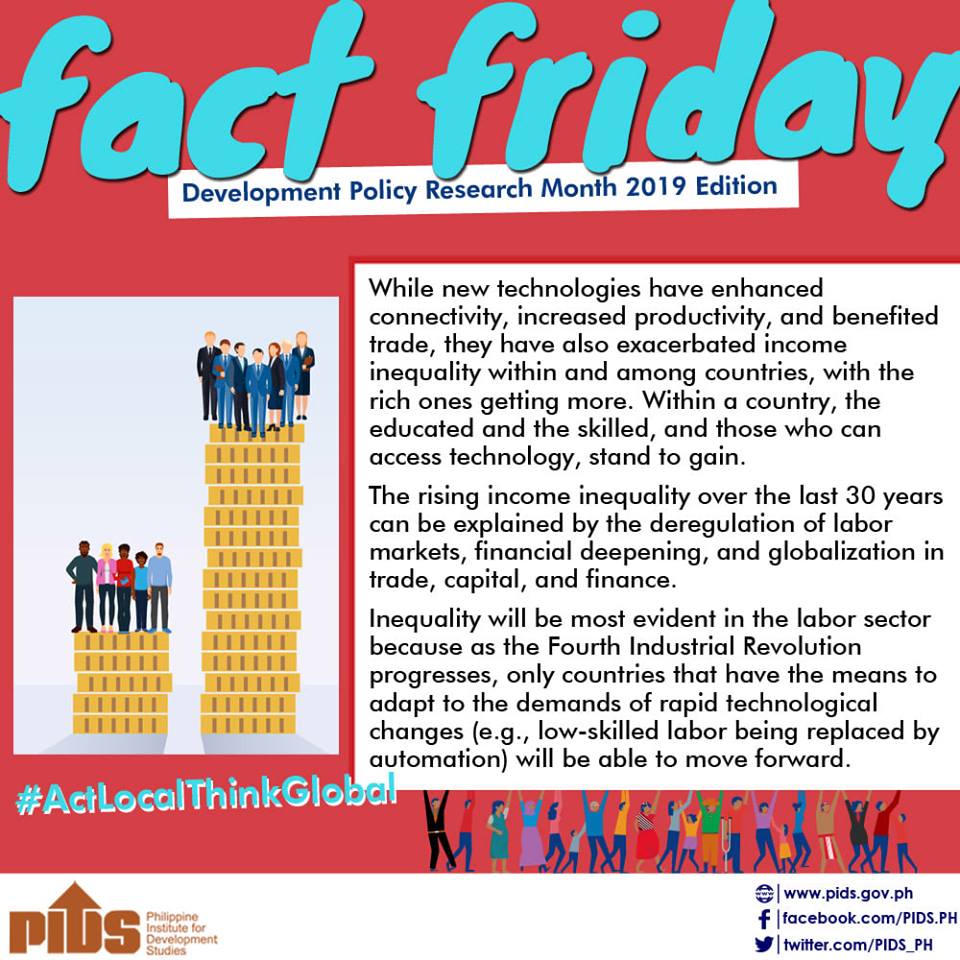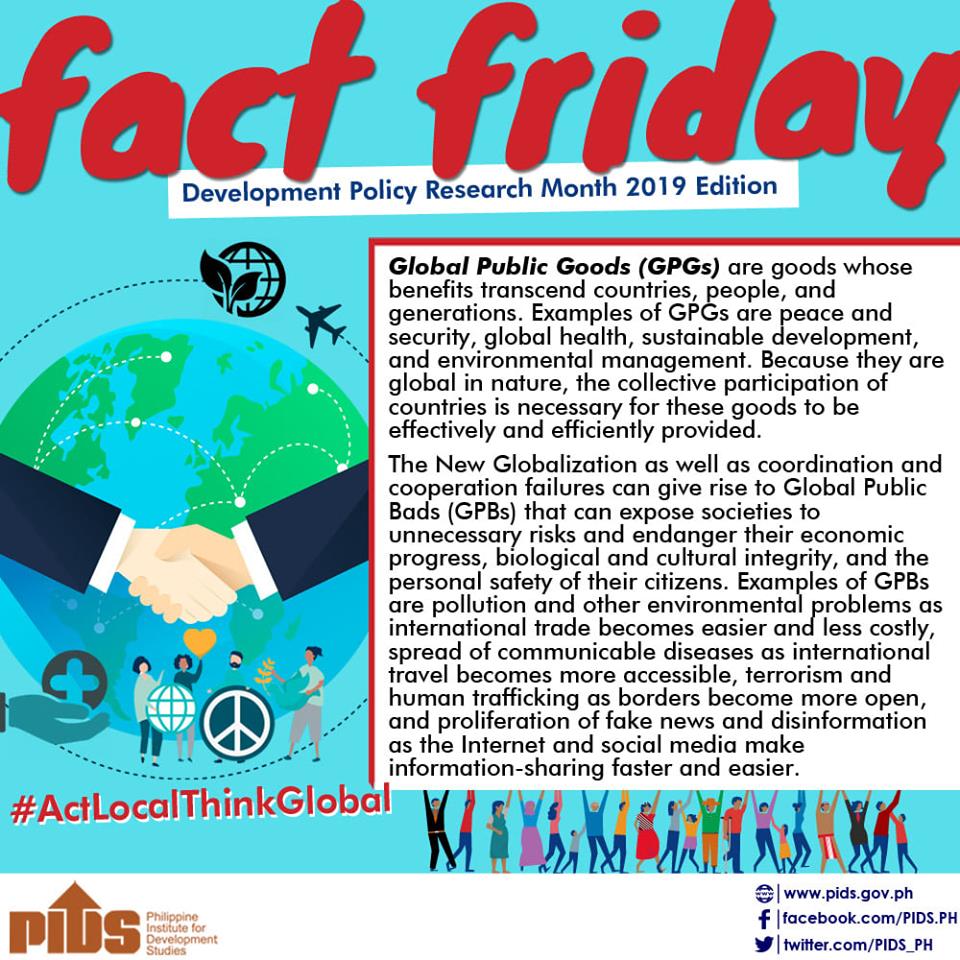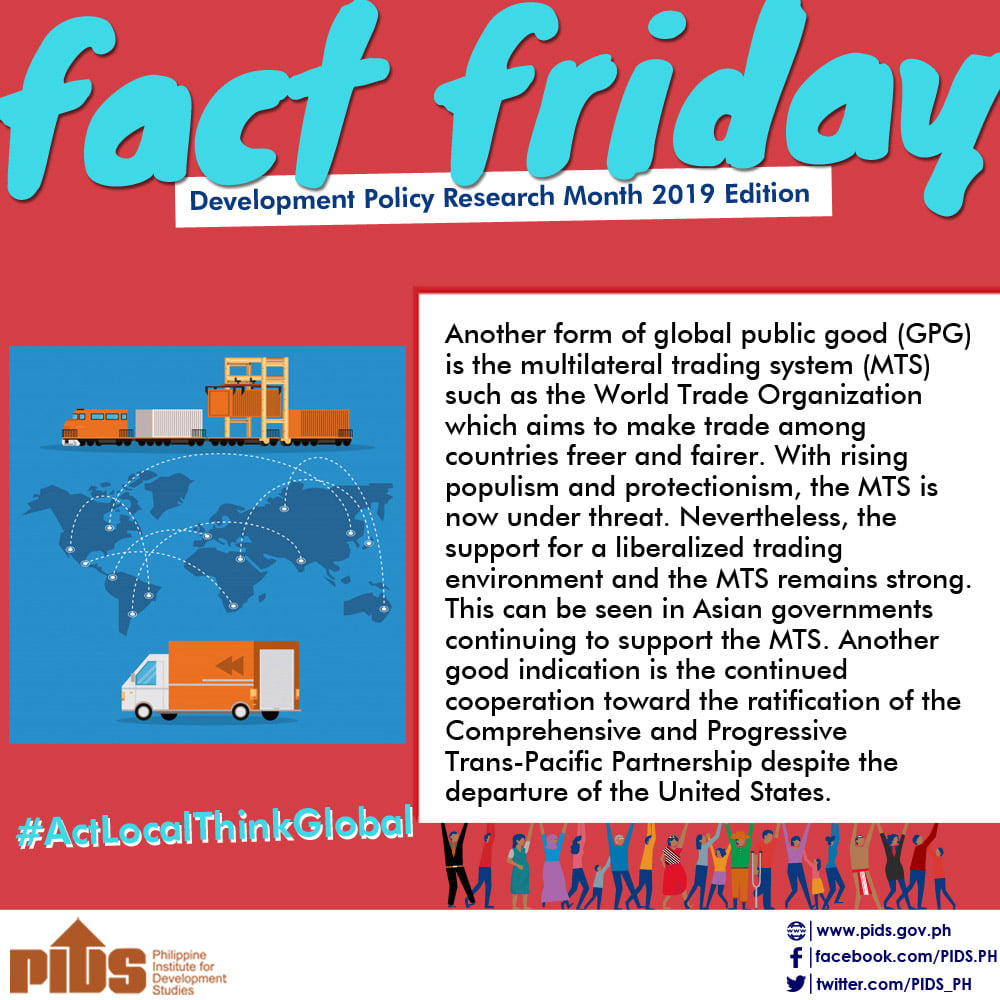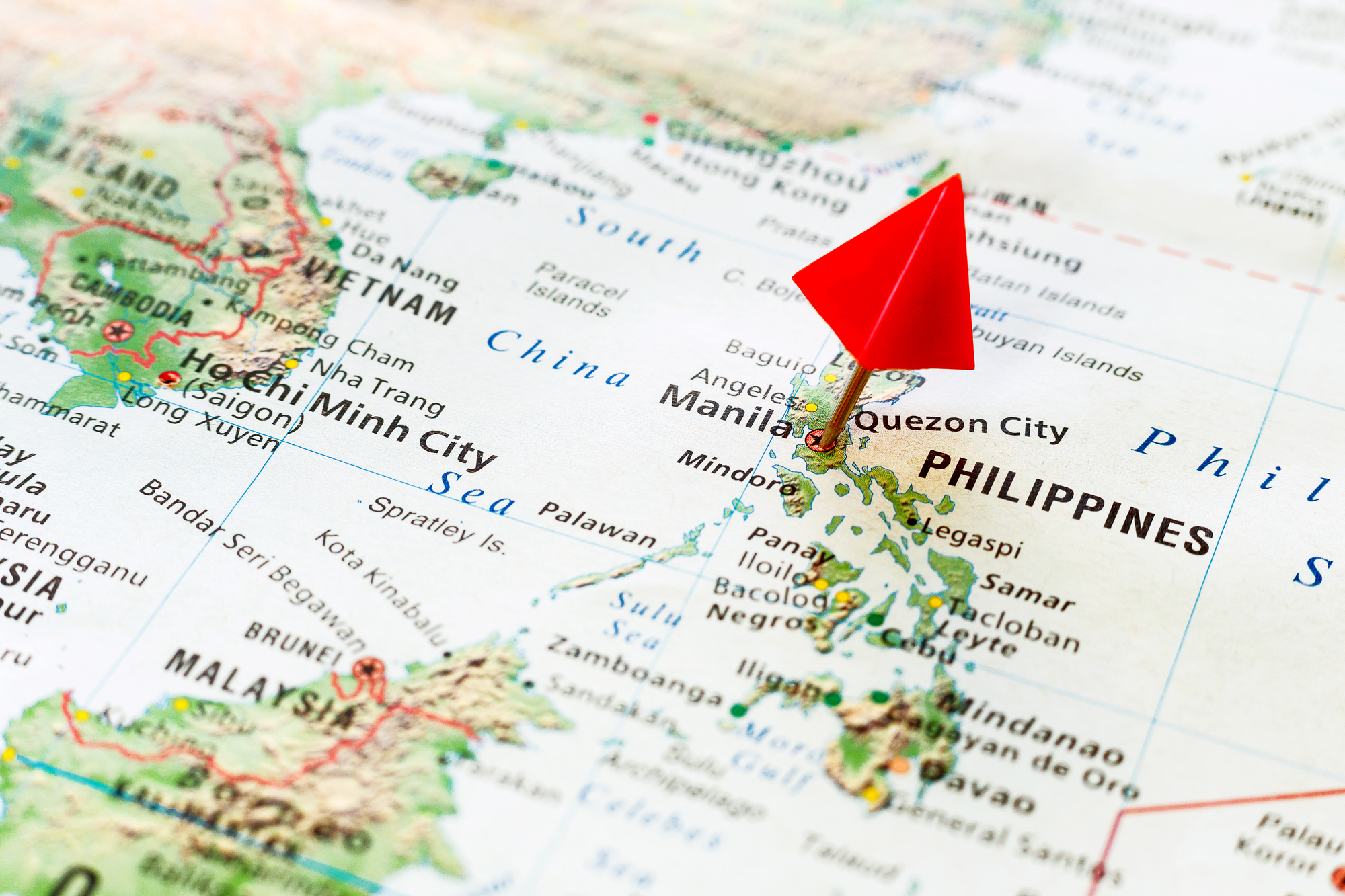
Embracing globalization does not mean giving up the territorial and other fundamental rights of the Philippines.
This was according to Dr. Erlinda Medalla, former senior research fellow at state think tank Philippine Institute for Development Studies (PIDS) and former project director of the Philippine APEC Study Centers Network, during the fifth Annual Public Policy Conference (APPC) held in Pasay City recently. Medalla sat as one of the discussants for the morning plenary of the APPC.
“Globalization merely calls for better enforcement of our rights, wherein we need to have a global framework and global institutions to manage them,” Medalla said.
In a paper, the World Economic Forum also called for the establishment of a global governance architecture, with the international community coming together to build a shared future.
Poor financing of global goods
A PIDS study, however, found that the current efforts advancing global framework are fraught with challenges that limit the countries’ ability to coordinate and cooperate toward some global goal.
Among these efforts are the global public goods (GPGs), which suffer from underfunding, according to Drs. Roehlano Briones, Connie Dacuycuy, Francis Quimba, and Michael Abrigo, authors of the PIDS study, “Understanding the New Globalization: Implications for the Philippines”.
GPGs generally refer to goods whose impact transcend national boundaries and which no single nation can devise a response sufficient to implement them.
They also extend across generations and go beyond one socioeconomic group.
Included in the current GPGs are global policies on social justice, such as the United Nations (UN) Convention on the Elimination of All Forms of Discrimination against Women, and international law, such as the UN Convention on the Law of the Sea (UNCLOS).
These public goods are usually protected through international bodies, such as the Permanent Court of Arbitration (PCA), or through incorporation in the municipal law of a nation.
While they are not new concepts, the PIDS authors claimed GPGs have become more important in the face of globalization and technological progress.
GPGs are potent tool to counter the negative consequences of globalization, such as global pollution, propagation of fake news and untruths, and spread of communicable diseases. It also empowers smaller states against the possible economic and physical intimidation of larger states.
Even with such relevance, however, the PIDS researchers revealed that GPGs remain underprovided.
In the case of the UN system as a global institution, for instance, they said its revenues, including both mandatory and voluntary contributions from state and nonstate actors, totaled to just less than 0.1 percent of the world gross domestic product in the past few years.
“Despite the increasing need for GPGs, total spending on them has remained relatively unchanged—even declining in some categories—over the years,” they added.
The fake news of the millennium
Possible result of such underfunding includes the poor implementation of, if not noncompliance to, GPGs.
In 2016, the PCA upheld the Philippines’ exclusive sovereign rights over the West Philippine Sea and declared China’s “nine-dash line” as invalid following the principles of UNCLOS.
China has since rejected the arbitral ruling, while still clinging to its nine-dash claim.
In his presentation during the APPC, Associate Justice Antonio Carpio of the Supreme Court of the Philippines tagged this nine-dash claim as the “fake history of the millennium”.
"Every time they raise this, we have to rebut it. We have to expose it as a historical lie because the more they repeat and repeat this and we do not rebut it, there are people who would think it is true," he said.
China, however, has not limited its actions to word war, as it has also intensified its physical activities in the disputed waters.
There have also been reported cases of intimidation against Filipinos, with Chinese coast guards sinking Filipino fishing boats.
Despite China’s rejection of the arbitral ruling, the Philippines still expects positive compliance on the part of the Asian giant, according to the Department of Foreign Affairs.
APPC served as highlight of the celebration of the 17th Development Policy Research Month (DPRM).
The DPRM is celebrated across the country every September in view of Malacañang Proclamation 247 issued in 2002. It promotes public awareness and appreciation of the importance of policy research in the formulation of evidence-based public policies, programs, and projects.
With the theme, “Navigating the New Globalization: Local Actions for Global Challenges”, this year’s APPC gathered experts from government, academe, and multilateral development agencies to provide a deeper understanding of how changes in the global economy as well as technological advancements will affect equity and inclusiveness of humanity’s progress. ###
This was according to Dr. Erlinda Medalla, former senior research fellow at state think tank Philippine Institute for Development Studies (PIDS) and former project director of the Philippine APEC Study Centers Network, during the fifth Annual Public Policy Conference (APPC) held in Pasay City recently. Medalla sat as one of the discussants for the morning plenary of the APPC.
“Globalization merely calls for better enforcement of our rights, wherein we need to have a global framework and global institutions to manage them,” Medalla said.
In a paper, the World Economic Forum also called for the establishment of a global governance architecture, with the international community coming together to build a shared future.
Poor financing of global goods
A PIDS study, however, found that the current efforts advancing global framework are fraught with challenges that limit the countries’ ability to coordinate and cooperate toward some global goal.
Among these efforts are the global public goods (GPGs), which suffer from underfunding, according to Drs. Roehlano Briones, Connie Dacuycuy, Francis Quimba, and Michael Abrigo, authors of the PIDS study, “Understanding the New Globalization: Implications for the Philippines”.
GPGs generally refer to goods whose impact transcend national boundaries and which no single nation can devise a response sufficient to implement them.
They also extend across generations and go beyond one socioeconomic group.
Included in the current GPGs are global policies on social justice, such as the United Nations (UN) Convention on the Elimination of All Forms of Discrimination against Women, and international law, such as the UN Convention on the Law of the Sea (UNCLOS).
These public goods are usually protected through international bodies, such as the Permanent Court of Arbitration (PCA), or through incorporation in the municipal law of a nation.
While they are not new concepts, the PIDS authors claimed GPGs have become more important in the face of globalization and technological progress.
GPGs are potent tool to counter the negative consequences of globalization, such as global pollution, propagation of fake news and untruths, and spread of communicable diseases. It also empowers smaller states against the possible economic and physical intimidation of larger states.
Even with such relevance, however, the PIDS researchers revealed that GPGs remain underprovided.
In the case of the UN system as a global institution, for instance, they said its revenues, including both mandatory and voluntary contributions from state and nonstate actors, totaled to just less than 0.1 percent of the world gross domestic product in the past few years.
“Despite the increasing need for GPGs, total spending on them has remained relatively unchanged—even declining in some categories—over the years,” they added.
The fake news of the millennium
Possible result of such underfunding includes the poor implementation of, if not noncompliance to, GPGs.
In 2016, the PCA upheld the Philippines’ exclusive sovereign rights over the West Philippine Sea and declared China’s “nine-dash line” as invalid following the principles of UNCLOS.
China has since rejected the arbitral ruling, while still clinging to its nine-dash claim.
In his presentation during the APPC, Associate Justice Antonio Carpio of the Supreme Court of the Philippines tagged this nine-dash claim as the “fake history of the millennium”.
"Every time they raise this, we have to rebut it. We have to expose it as a historical lie because the more they repeat and repeat this and we do not rebut it, there are people who would think it is true," he said.
China, however, has not limited its actions to word war, as it has also intensified its physical activities in the disputed waters.
There have also been reported cases of intimidation against Filipinos, with Chinese coast guards sinking Filipino fishing boats.
Despite China’s rejection of the arbitral ruling, the Philippines still expects positive compliance on the part of the Asian giant, according to the Department of Foreign Affairs.
APPC served as highlight of the celebration of the 17th Development Policy Research Month (DPRM).
The DPRM is celebrated across the country every September in view of Malacañang Proclamation 247 issued in 2002. It promotes public awareness and appreciation of the importance of policy research in the formulation of evidence-based public policies, programs, and projects.
With the theme, “Navigating the New Globalization: Local Actions for Global Challenges”, this year’s APPC gathered experts from government, academe, and multilateral development agencies to provide a deeper understanding of how changes in the global economy as well as technological advancements will affect equity and inclusiveness of humanity’s progress. ###

